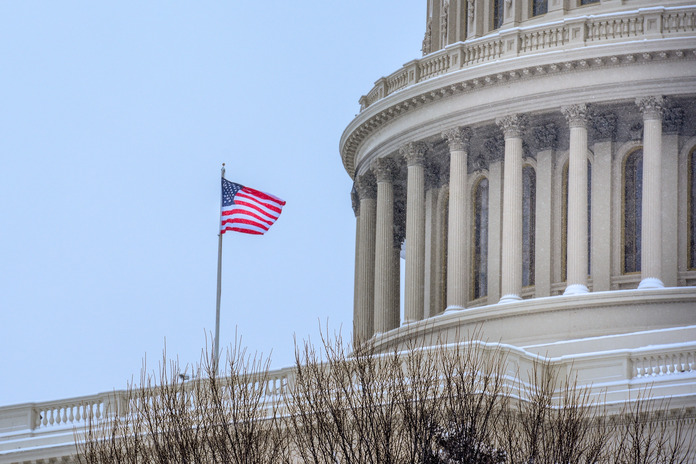The current debate centers on whether the U.S. government’s policies are stifling technological innovation. Critics argue that stringent regulations and a lack of support for emerging technologies are hindering progress. Let’s explore the key points of this discussion.
Impact of Government Policies on Technological Innovation
Technological innovation is crucial for economic growth and global competitiveness. However, some believe that the U.S. government’s regulatory framework is overly restrictive, making it difficult for new technologies to flourish. For example, tech companies often face significant hurdles when trying to bring new products to market due to complex approval processes and compliance requirements.
Case Study: The Struggles of Emerging Technologies
Emerging technologies such as artificial intelligence (AI), blockchain, and biotech have transformative potential. Yet, these sectors often encounter regulatory roadblocks. For instance, AI companies may struggle with data privacy laws that limit their ability to innovate. Similarly, blockchain startups face uncertainties regarding legal classifications and compliance issues.
The Role of Regulatory Bodies
Regulatory bodies such as the Federal Trade Commission (FTC) and the Food and Drug Administration (FDA) play a significant role in overseeing technological advancements. While their primary aim is to protect consumers, the stringent regulations they enforce can sometimes delay the development and deployment of new technologies.
Critics argue that a more balanced approach is needed to foster innovation while ensuring consumer safety. This balanced approach could involve updating regulations to keep pace with rapid technological changes, offering clearer guidelines to innovators, and implementing pilot programs that allow for controlled experimentation with new technologies.
Examples of Regulatory Challenges
One prominent example is the healthcare sector, where biotech companies often face long and expensive approval processes for new treatments. This can deter investment and slow down the pace of innovation. Additionally, tech companies in the cybersecurity space must navigate a complex web of regulations, which can impede the rapid deployment of critical security measures.
Furthermore, these challenges are compounded by the need for continuous compliance with evolving standards, which requires significant resources. This regulatory burden can be particularly heavy for smaller companies and startups, potentially stifling innovative solutions that could enhance security and protect consumer data in an increasingly digital world.
Potential Solutions to Foster Technological Innovation
To address these challenges, experts suggest several potential solutions. One approach is to streamline regulatory processes, making them more efficient without compromising on safety. Another suggestion is to increase government funding and support for research and development (R&D) in emerging technologies. Tax incentives and grants can also encourage private sector investment in innovation.
The Economic Implications of Stifling Innovation
Stifling technological innovation can have far-reaching economic implications. Without a conducive environment for innovation, the U.S. risks falling behind other nations in terms of technological advancements and economic growth. Countries that foster innovation tend to attract more investments, create high-paying jobs, and lead in global markets.
The Tech Industry’s Response
The tech industry has been vocal about the need for more supportive government policies. Industry leaders argue that fostering a collaborative relationship between the government and tech companies can lead to better outcomes for all stakeholders. By working together, they can create a regulatory environment that promotes innovation while ensuring consumer protection.
Conclusion
In conclusion, the debate over whether the U.S. government is killing technological innovation is complex. While regulations are necessary to protect consumers and ensure safety, an overly restrictive approach can hinder progress. A balanced regulatory framework, combined with increased support for R&D and private sector investment, can foster an environment where technological innovation thrives. This, in turn, will have positive economic implications and help maintain the U.S.’s position as a global leader in technology.
Featured Image: Freepik © EyeEm








